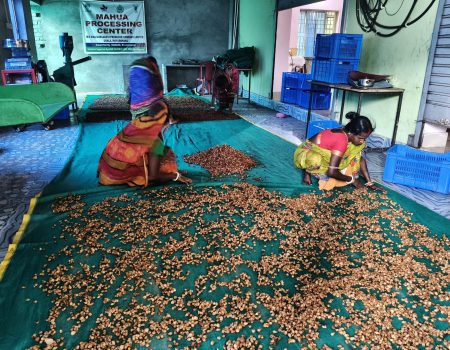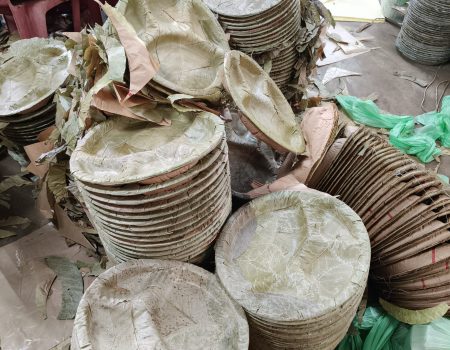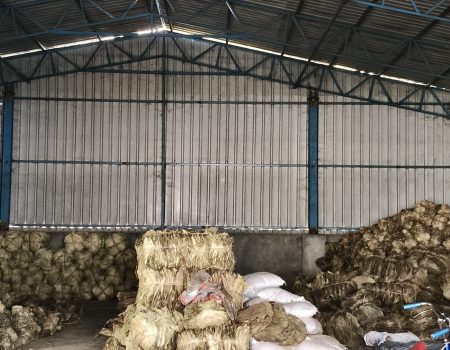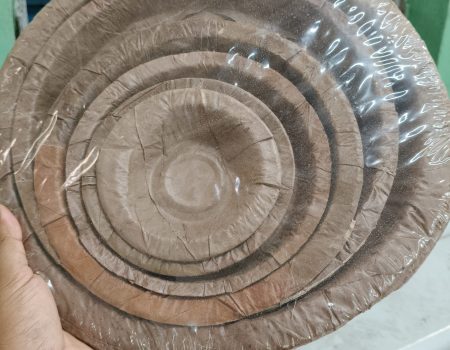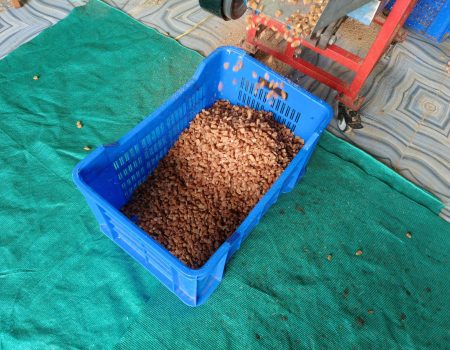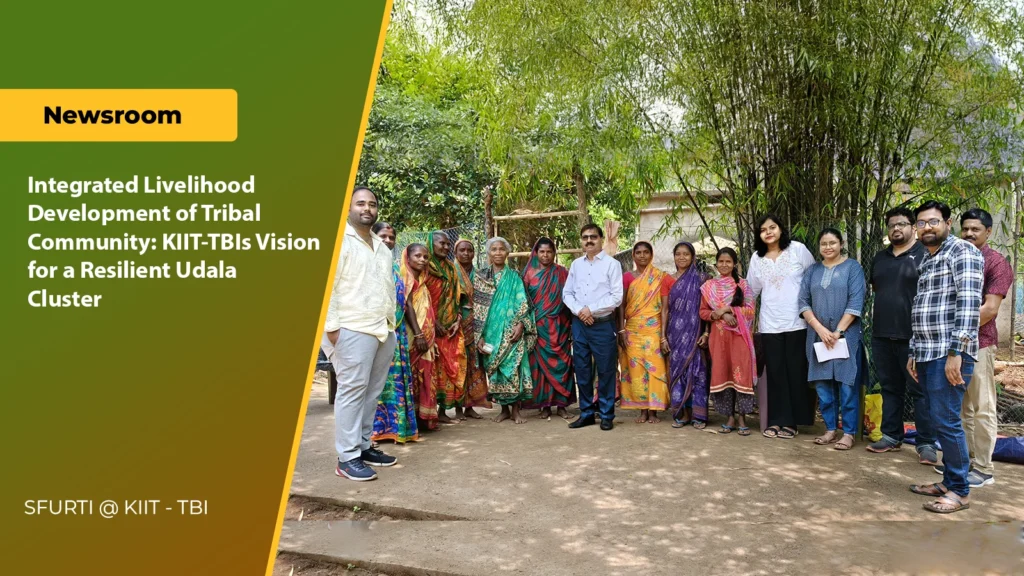To assess the feasibility of implementing an Integrated Local Economic Development Model (ILED) by directly engaging local tribal communities and enterprises at grassroots level, KIIT- Technology Business Incubator (KIIT-TBI) undertook a three-day primary survey cum gap finding exercise in Udala block of Mayurbhanj district, Odisha from April 16 to 18, 2025.
The visit was organized in collaboration with SOOVA (Implementing Agency) of two SFURTI clusters, namely Udala Palmarosa Cluster and Udala Sal leaf and honey cluster. Besides, the FPOs associated with the two clusters, i.e., Hingula Agri Producer Company Limited and Maa Durgadevi Producer Company Limited, also provided invaluable support during the course of the survey. The vision behind this initiative was to understand the operational strategy of the two SFURTI clusters in the tribal dominated region and explore potential for scalable and sustainable income generation by exploring integration with allied sectors such as backyard poultry, hatchery operations, and goatery. Ultimately, the goal is to establish a community-based, sustainable socio-economic development model tailored to the needs and strengths of the region.
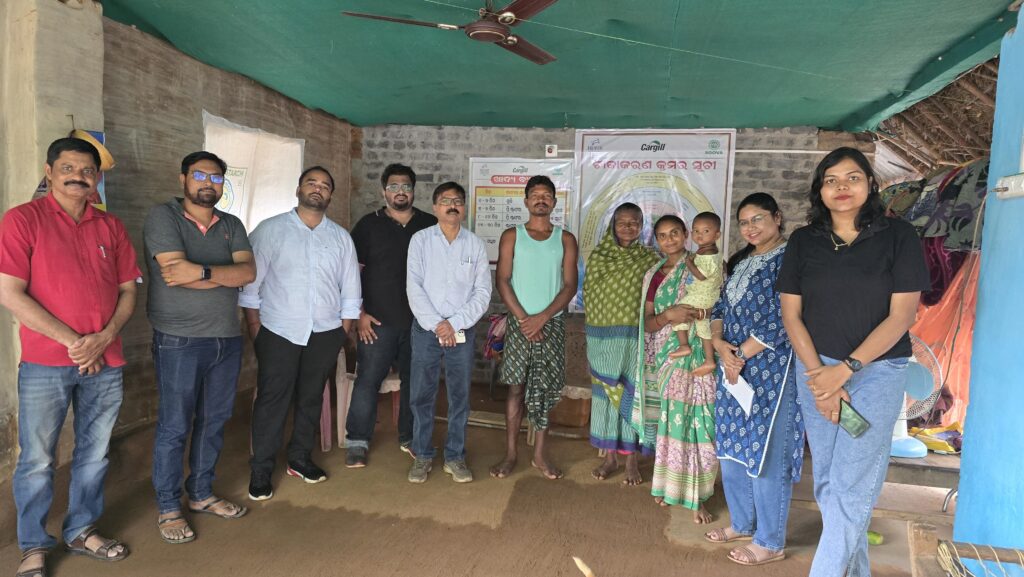
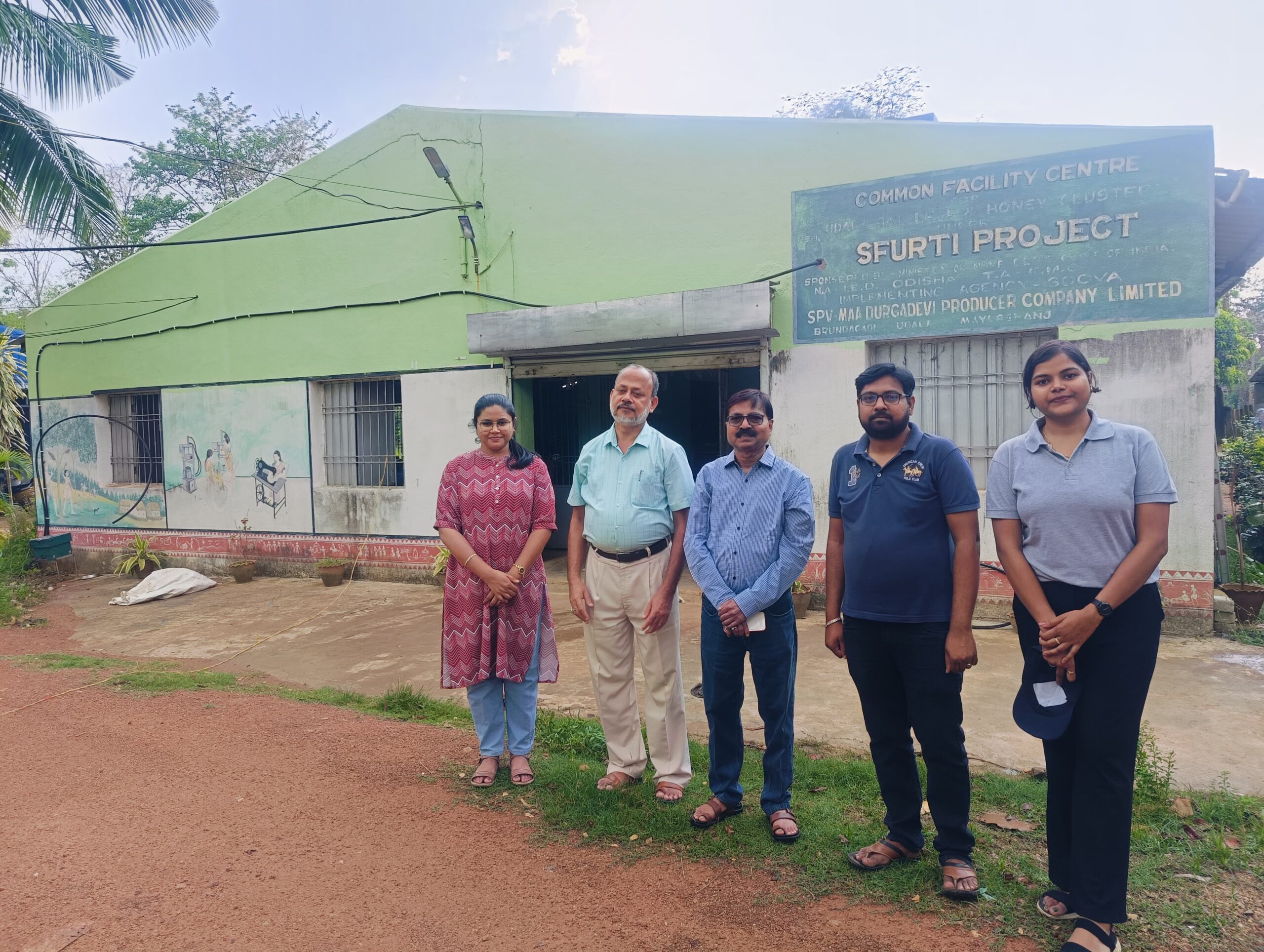
On 16 th April, the team from KIIT-TBI comprising of Dr. Barada Prasanna Sahu (Manager), Ms. Subhasmita Sahoo (Assistant Manager), and Investigators Mr. Abhisekh Tripathy and Ms. Nibedita Khatua under the supervision and guidance of Advisor Shri Samarendra Sahu (Retd. ADC, MSME) was accompanied by Mr. Ranjan Kumar Mishra, Secretary of Soova (Implementing Agency) during the on-site exploration of the operations of two SFURTI clusters i.e., Sal Leaf and Honey Processing Cluster and Palmarosa Cluster. During the visit, the team observed the smooth and efficient supply chain management implemented by the FPOs managing these clusters. A notable example is the Maa Durgadevi Producer Company Limited, the FPO managing the Sal Leaf and Honey Processing Cluster. This FPO sources raw materials from 27 villages and employs approximately 100 tribal women in the processing of Sal leaves.
They also provide logistical support for the transportation and collection of wild honey. Additionally, the FPO supports tribal farmers in the collection of Mahua by supplying nets and offering training in efficient and sustainable harvesting practices. A particularly inspiring aspect was that many tribal women beneficiaries were not only employed as factory workers but also actively involved in managing business operations and contributing to the enterprise’s expansion. Similarly, the Palmarosa Cluster is functioning under a hub-and- spoke model, with primary collection and processing units set up in the villages where Palmarosa is cultivated. Secondary activities such as packaging, branding, and marketing are carried out at the Common Facility Center.
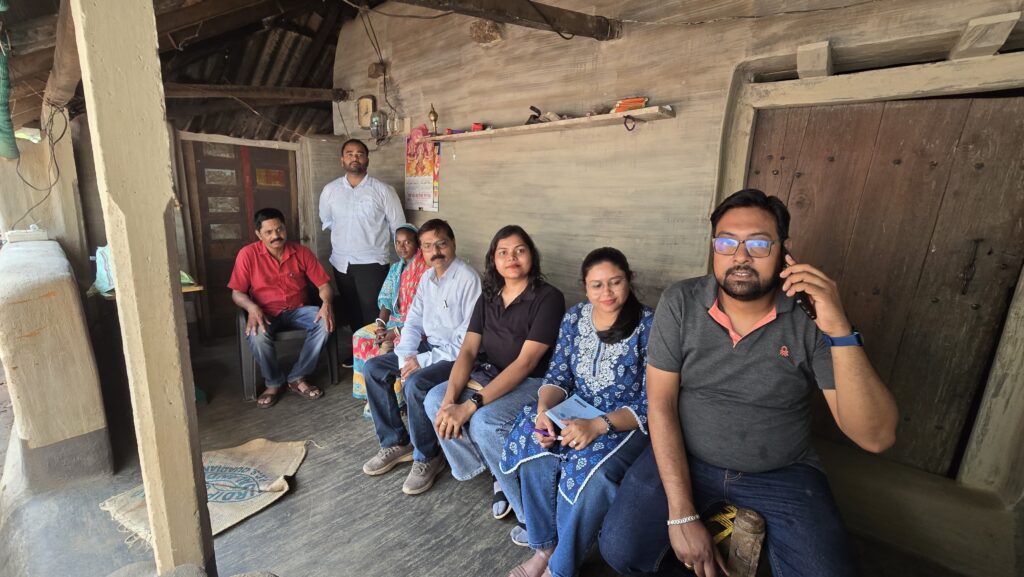
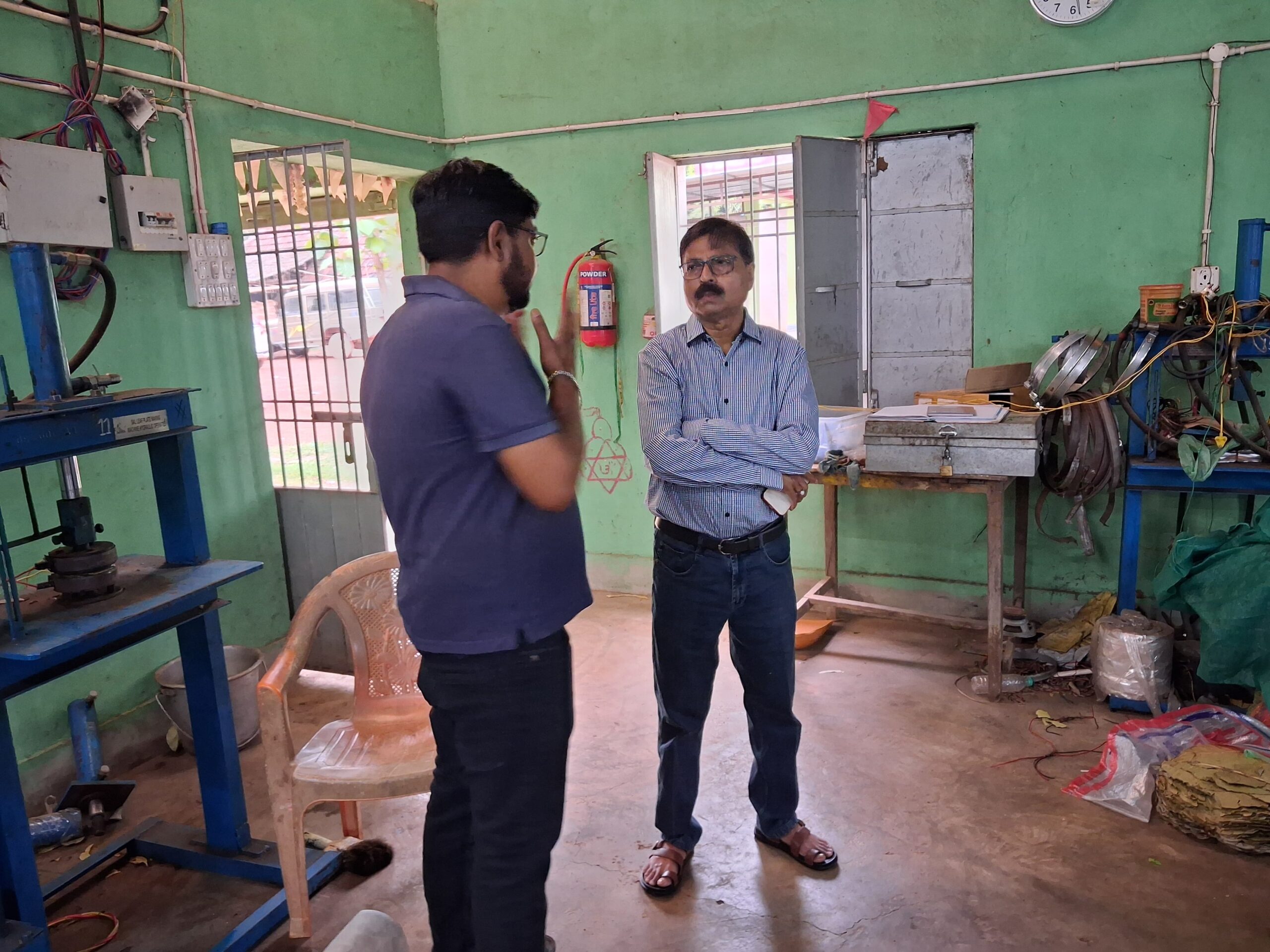
This integrated and community-driven approach stood out as an innovative and impactful model of rural entrepreneurship. To gain deeper insights into the clusters, the team held discussions with Mr. Nihar Ranjan Panda (CEO, Hingula Agri Producer Company Ltd.) and Mr. Manoj Kumar Swain (Documentation Officer, Soova). These conversations brought several key themes to light, notably the pressing need for product diversification, scaling and the establishment of sustainable market access, all of which are critical for future sustainability. In addition to cluster development activities, SOOVA has been actively involved in promoting livelihoods, capacity building, training, and other community development initiatives in the region. With a vision to ensure year-round income for tribal communities, SOOVA has introduced various livelihood interventions in the Udala region, including hatcheries, backyard poultry, and goatery initiatives.
These efforts are further strengthened through collaborations with organisations such as Heifer International, which has supported the development of backyard poultry and hatching units and Zappfresh—a Gurgaon-based farm-to-fork start-up that ensured the marketing. To observe these initiatives in action, the team visited several villages and interacted directly with tribal beneficiaries engaged in these livelihood activities with SOOVA’s support. The team first visited to Godheimara village on 16 th April and engaged with several women- led backyard poultry units. This on-ground exploration offered valuable insights into key influencing factors such as motivation, communication barriers (language), access to finance, awareness, and marketing, associated with the livelihood practice in the tribal community. It was noted that the pattern of engagement among tribal women differs significantly from that observed in non-tribal areas.
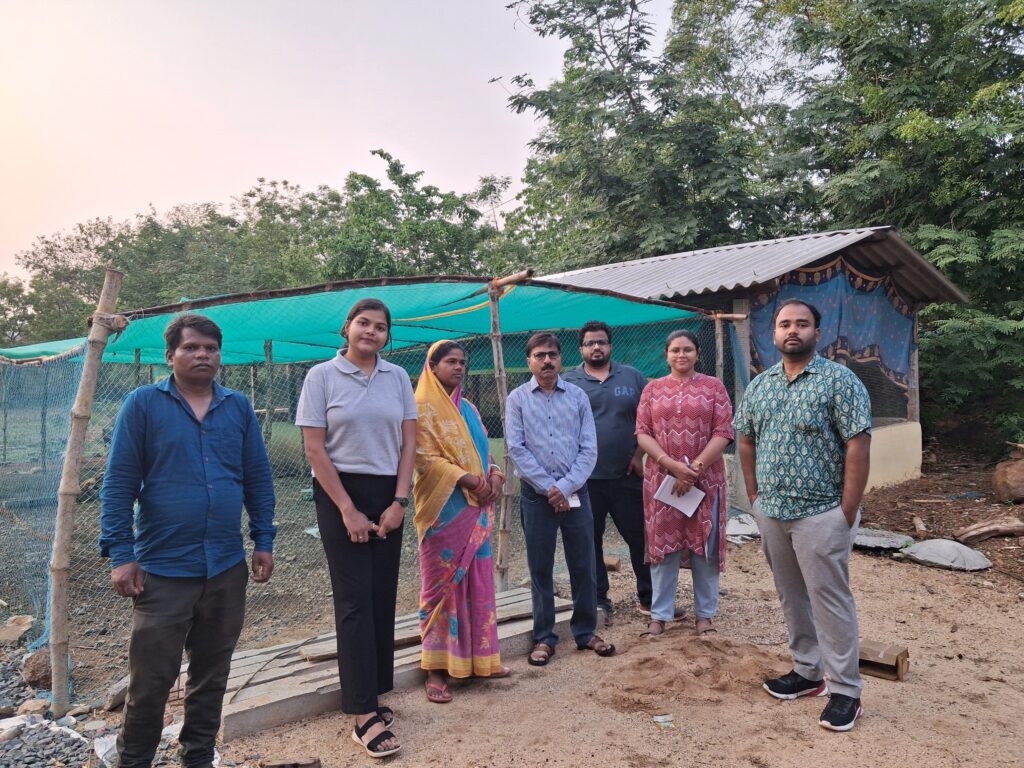
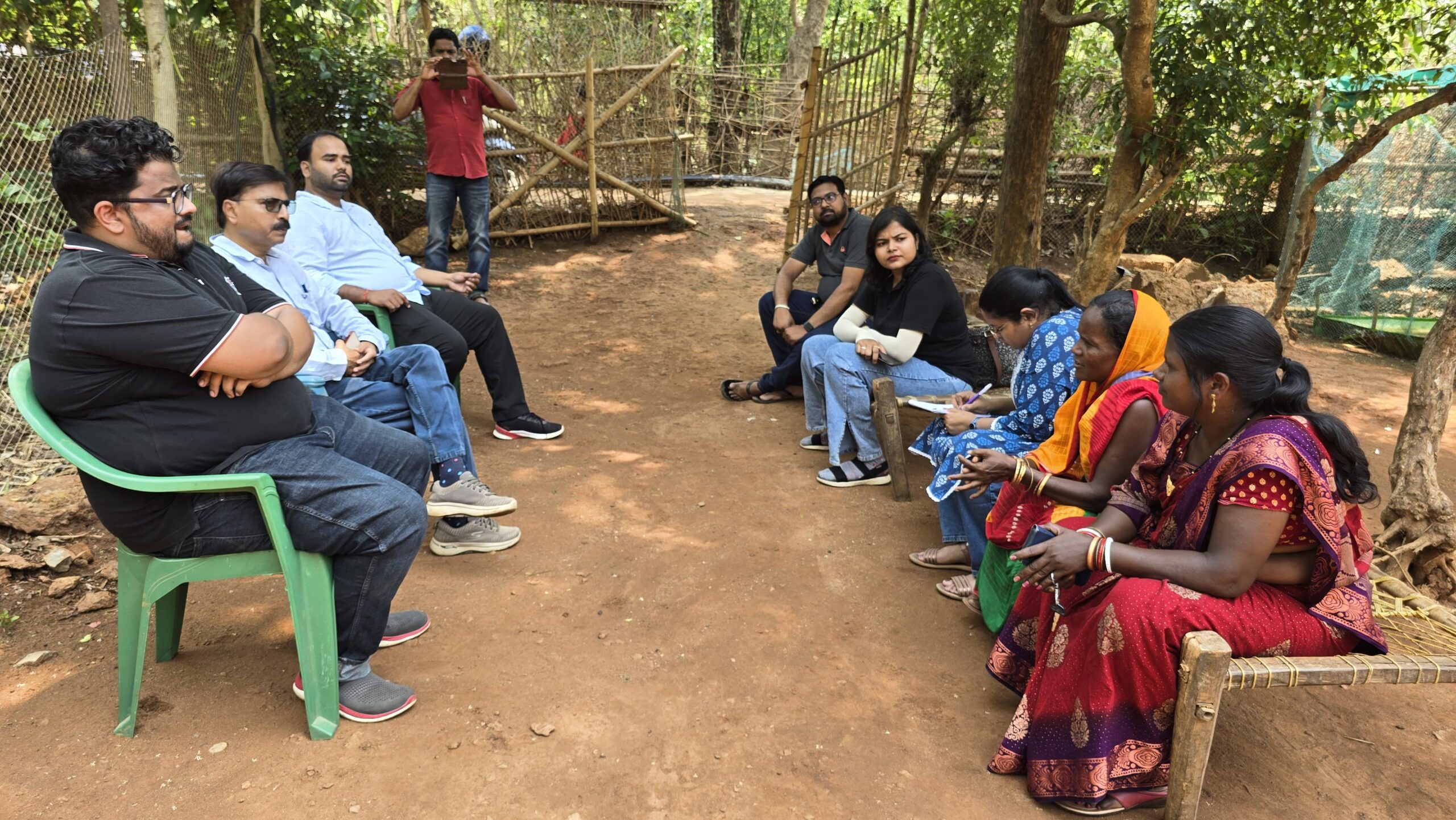
Mr. Nihar Ranjan Panda highlighted how it took SOOVA several years of consistent effort to mobilize the community and build awareness around sustainable livelihood options. He also emphasized the critical role played by Heifer International in providing both financial and training support to enable the success of these initiatives. On the following day, the team, accompanied by Mr. Arobinda Bindhani (Project Coordinator, SOOVA) and Mrs. Kabita Rani Singh (Master Trainer, Heifer International), visited a model poultry unit in Ghuntibani village. Mr. Bindhani explained the various measures undertaken to reduce poultry mortality rates, such as regular vaccination, the creation of secure enclosures, regulated feeding schedules, and the provision of high- quality feed.
An especially innovative practice observed during the visit was the use of Azolla cultivation beds, which provide a cost- effective source of poultry feed and demonstrate the community’s openness to sustainable and affordable solutions.
Mrs. Singh, on the other hand, provided a comprehensive overview of the poultry farming process, outlining the cost components and highlighting key areas that still require intervention such as access to funding, advanced training, marketing support, capacity building, community mobilization, and awareness programs to enable scaling. Mr. Bindhani also shed light on the transparent revenue- sharing model being practiced. In this system, tribal beneficiaries are paid directly by bulk buyers, with the FPO acting solely as a facilitator.

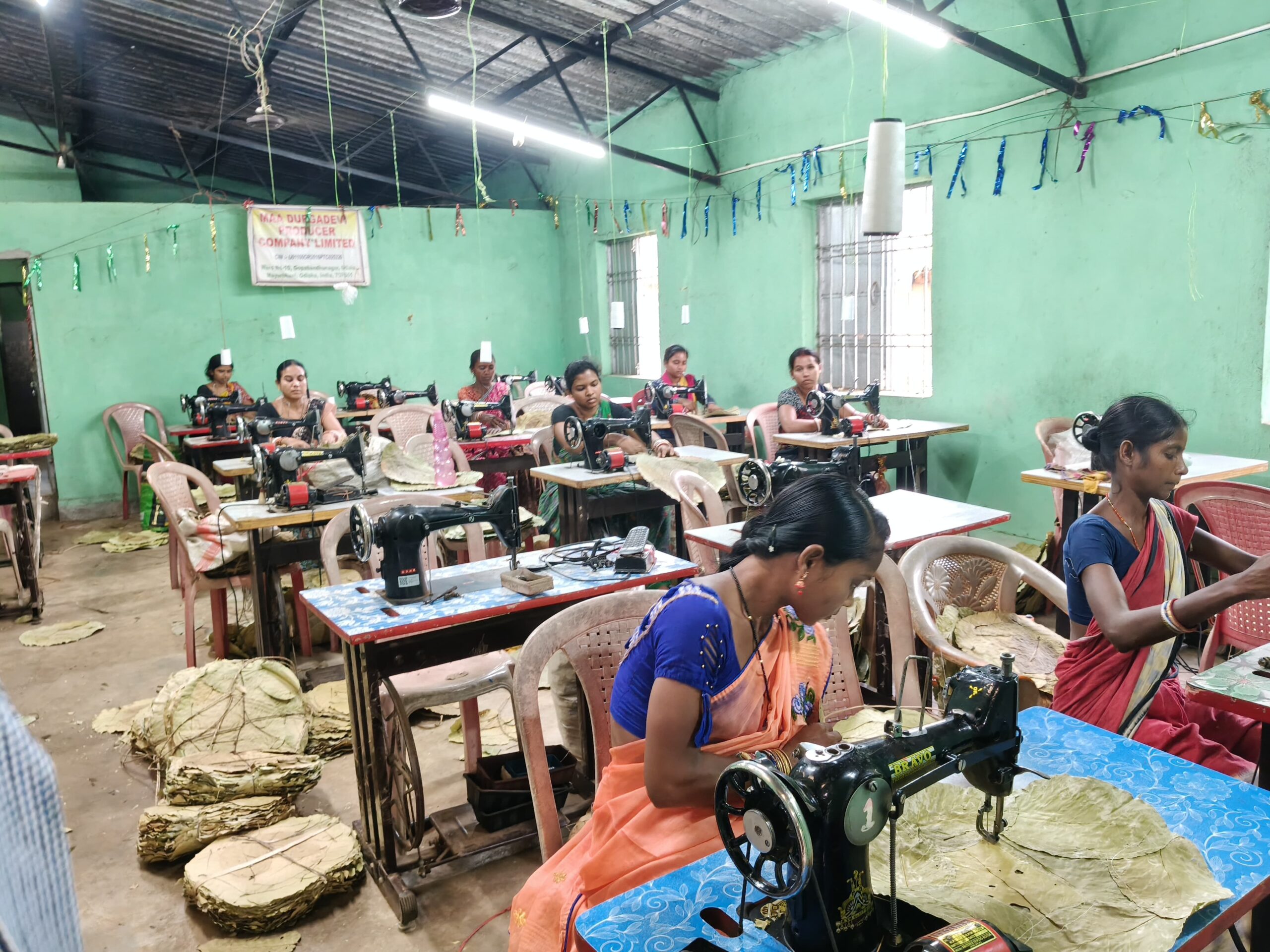
This direct- payment model enhances trust and ownership and offers a replicable framework for successful rural development initiatives. Later, the team visited a nearby hatchery unit, where tribal women were observed implementing scientific practices such as egg candling, systematic recordkeeping, and adherence to hygiene protocols. These observations reflect the significant progress made by the community in adopting innovative and sustainable livelihood practices, with the continuous guidance and support provided by SOOVA and its partners. Nearby the hatchery unit, the team had the opportunity to interact with Mrs. Salah Tudu, a tribal woman entrepreneur managing 30 goats on a clean and compact 320 sq. ft. farm.
Launched in 2016, her venture is driven by a clear ambition to scale. Salah maintains her herd using homemade feed, regular vaccinations, and market- aligned sales strategies. Her story reflects resilience and effective livestock management while showcasing the broader potential of structured livestock- based interventions to uplift tribal communities. Her growing income has improved her children’s educational opportunities and enhanced overall household wellbeing.
On the final day, the team travelled to Jamadiha, a remote village within the Similipal forest zone, where local communities continue to engage in poultry rearing and Mahua flower collection despite ecological and infrastructural challenges.
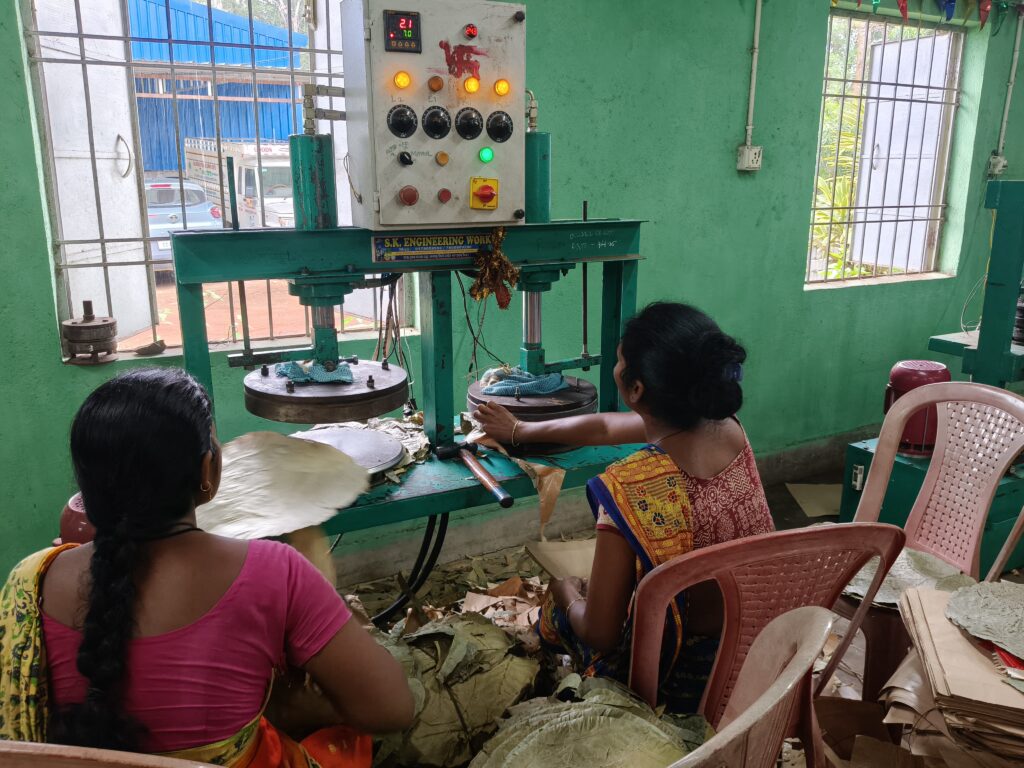
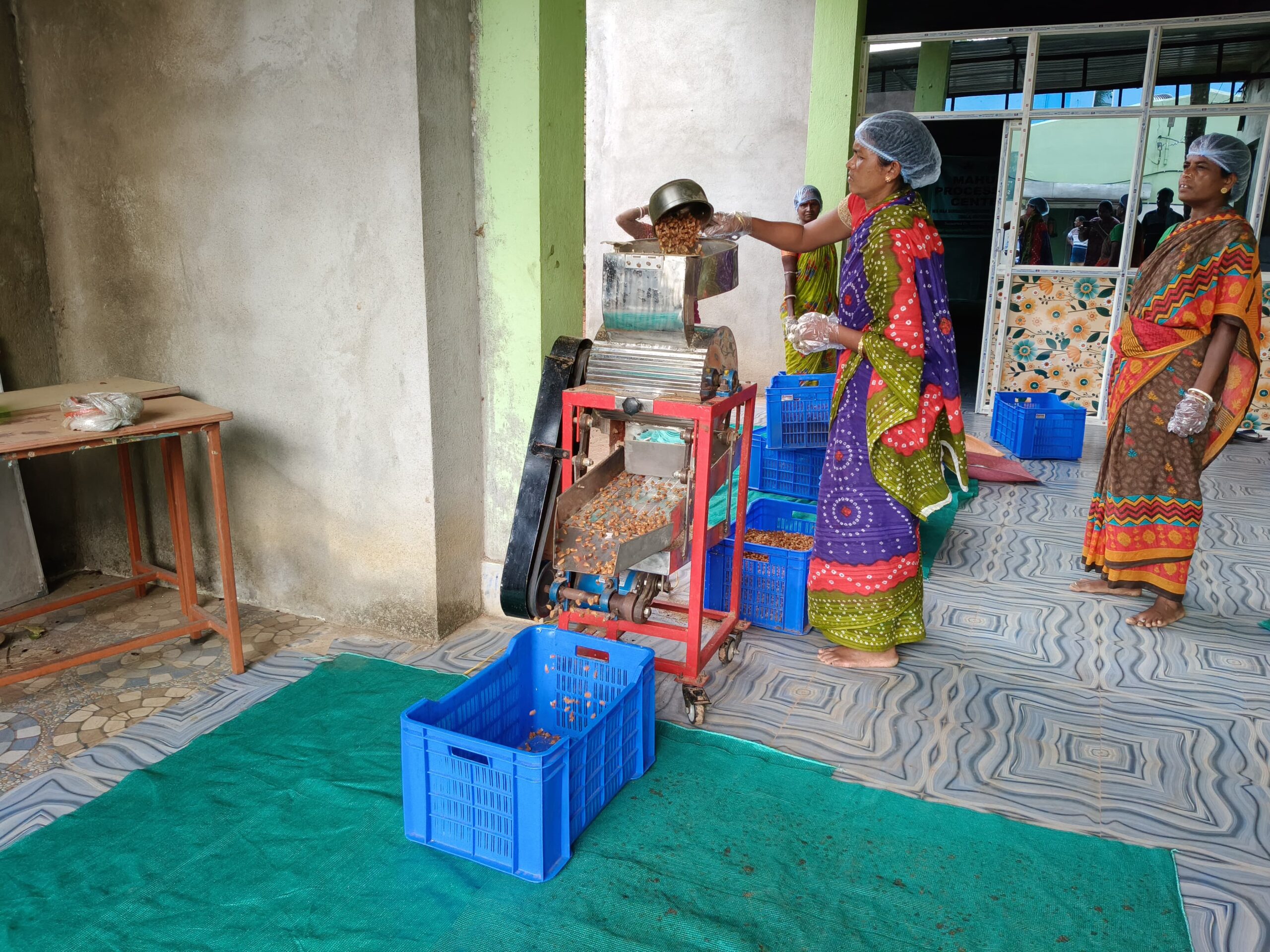
Mrs. Raibari Singh and Mrs. Budhimani Singh, residents of the village, shared their inspiring journey of resilience on how they have sustained their livelihoods through sheer determination in the face of limited funding and training, poor connectivity, restricted market access, and recurring human-wildlife conflict. Witnessing their drive and willingness to adopt sustainable livelihood models even amidst such adversity was truly remarkable. The three-day field exposure offered the KIIT-TBI team not only a firsthand understanding of on-ground realities but also valuable insights into potential areas for intervention in Udala. The convergence of NTFPs like Sal, Mahua, and honey, alongside livestock-based enterprises and the rich availability of seasonal fruits such as mango, jackfruit, and guava collectively position the region as a promising landscape for agro- and forest-based enterprise development.
In the concluding session with SOOVA officials, the team proposed the development of an integrated multi-product cluster model encompassing poultry, goatery, NTFPs and agro-processing enterprises. This cluster aims not only to enhance value addition but also to promote sustainable livelihood activities through profit-sharing mechanisms and the creation of markets for a wide range of forest-based agro and non-agro produce. Furthermore, given the region’s rich natural cover and tourism potential highlighted by attractions such as Devkund, Samibrukhya, Jhinkeswar Temple, Mouda Temple, Tarini Temple, and the Kalo and Sunei dams, eco-tourism presents itself as a viable and complementary economic avenue for the tribal communities. With strategic planning and phased implementation, eco-tourism could significantly augment local income generation while preserving cultural and ecological heritage.
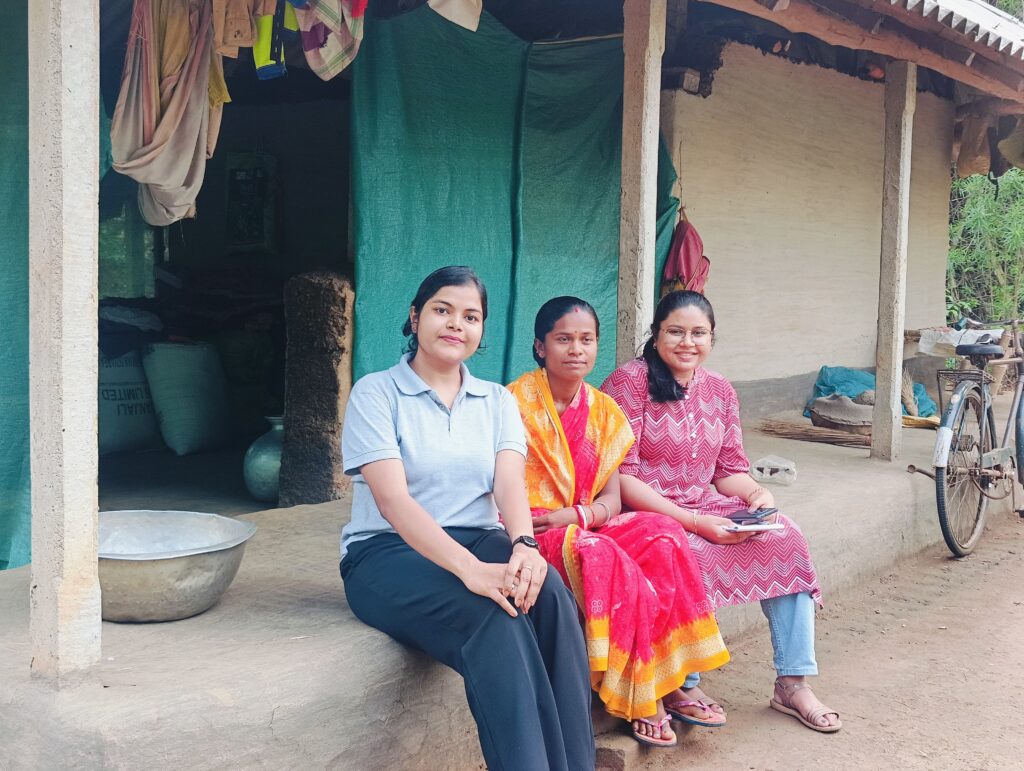
The visit concluded on a positive note, with Shri Samarendra Sahu expressing appreciation and felicitating the SOOVA team for their dedicated efforts. Insights gathered from this field study will play a key role in shaping a scalable, replicable roadmap for tribal enterprise-led growth in the Udala region.
Glimpses
